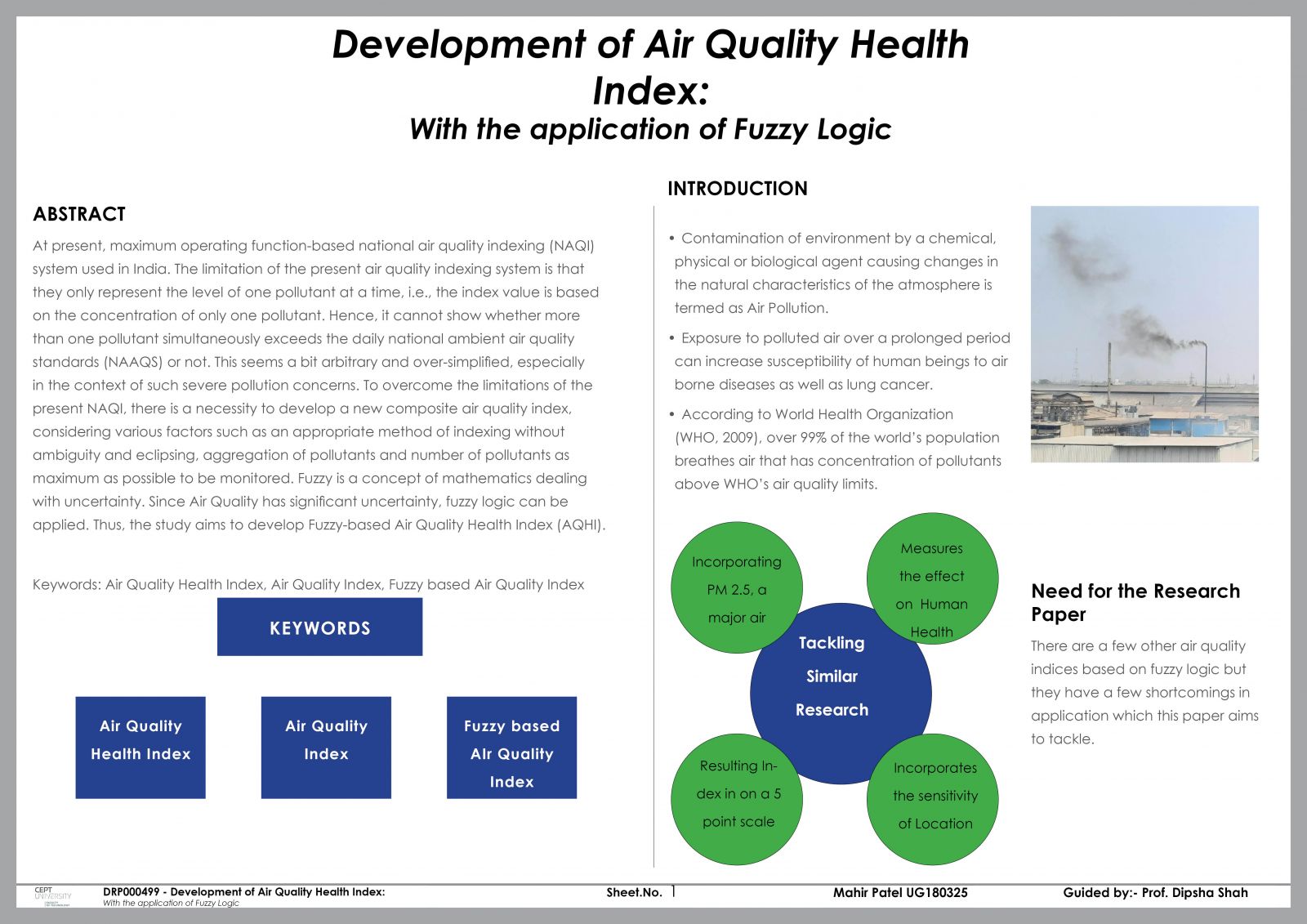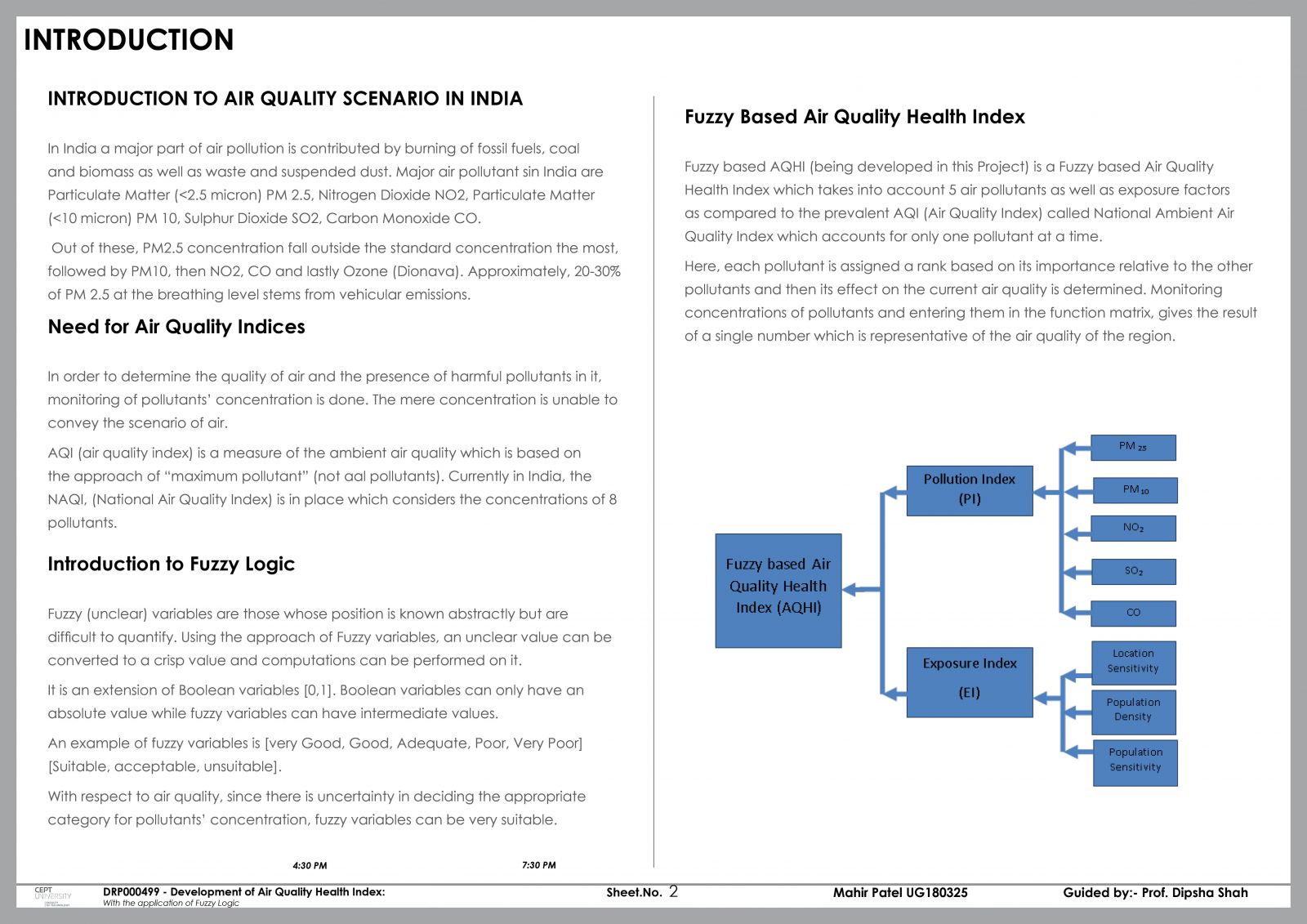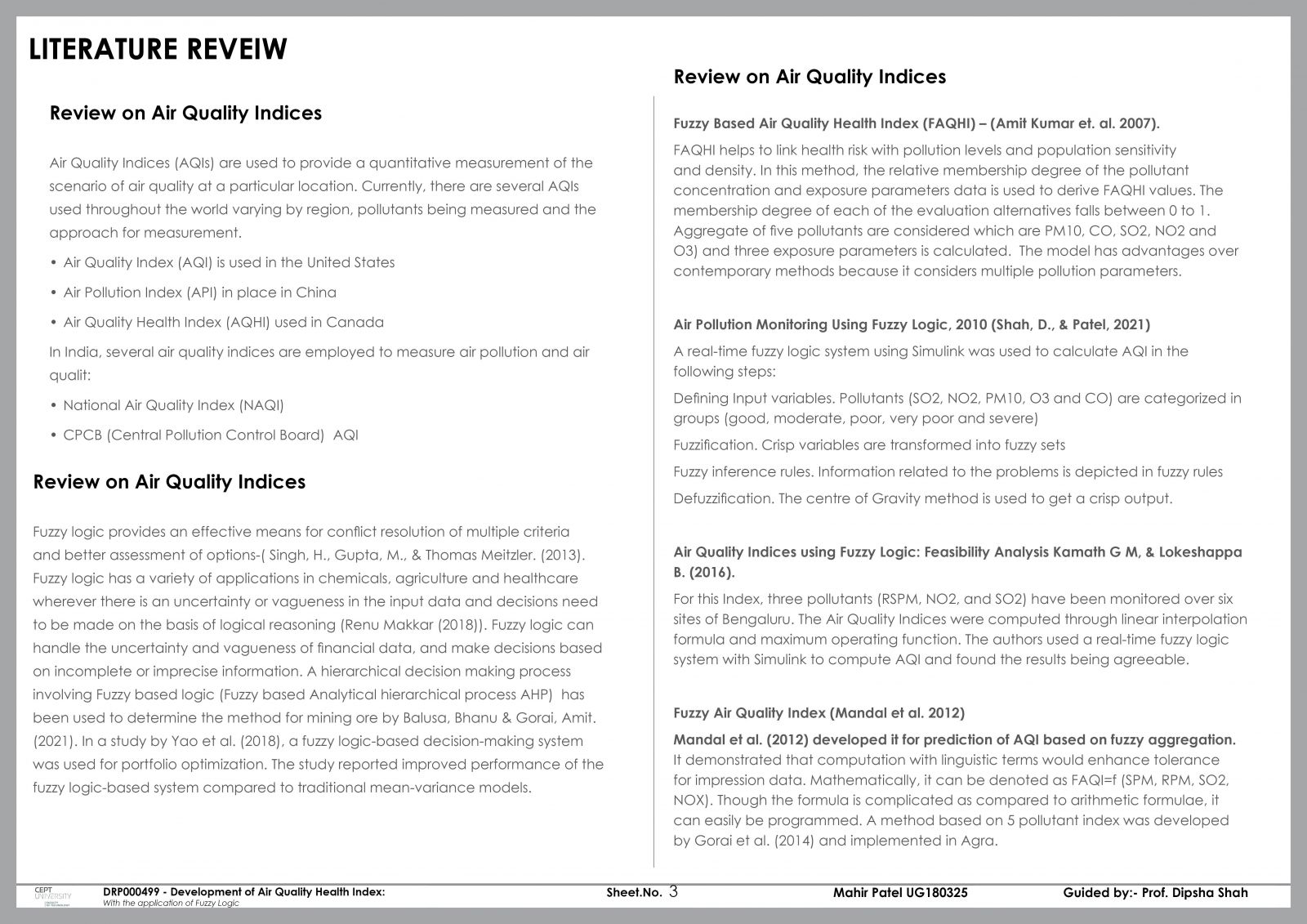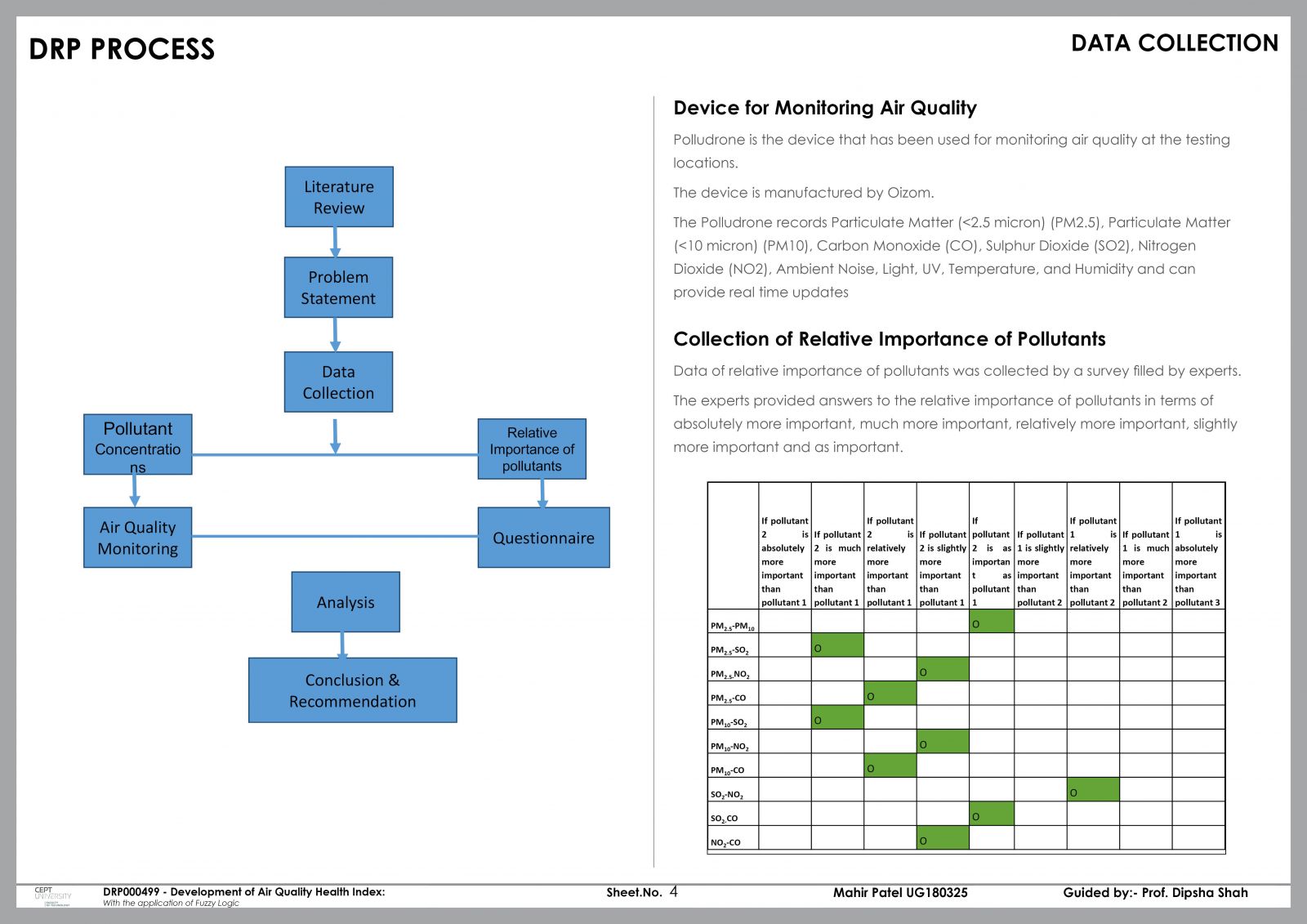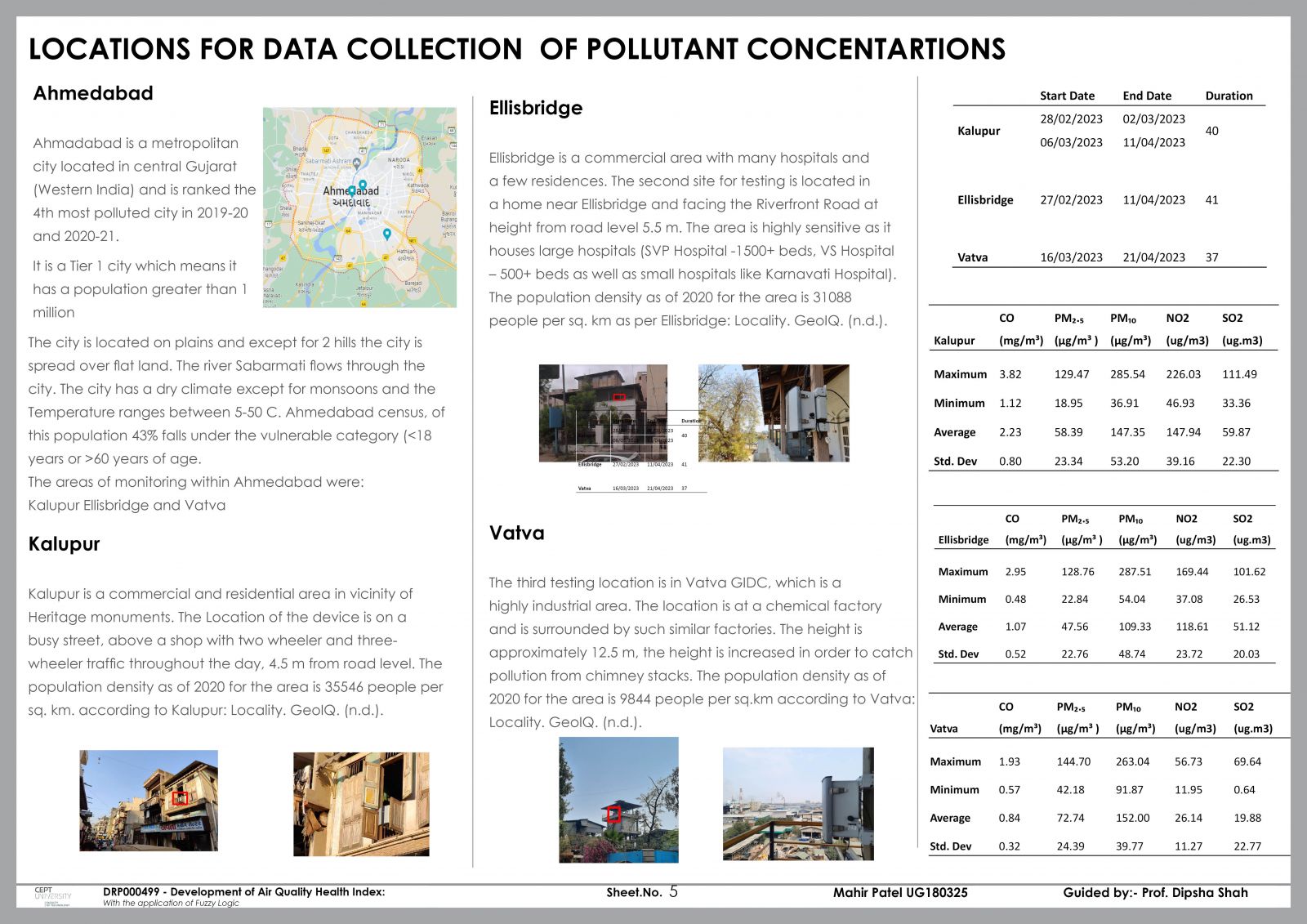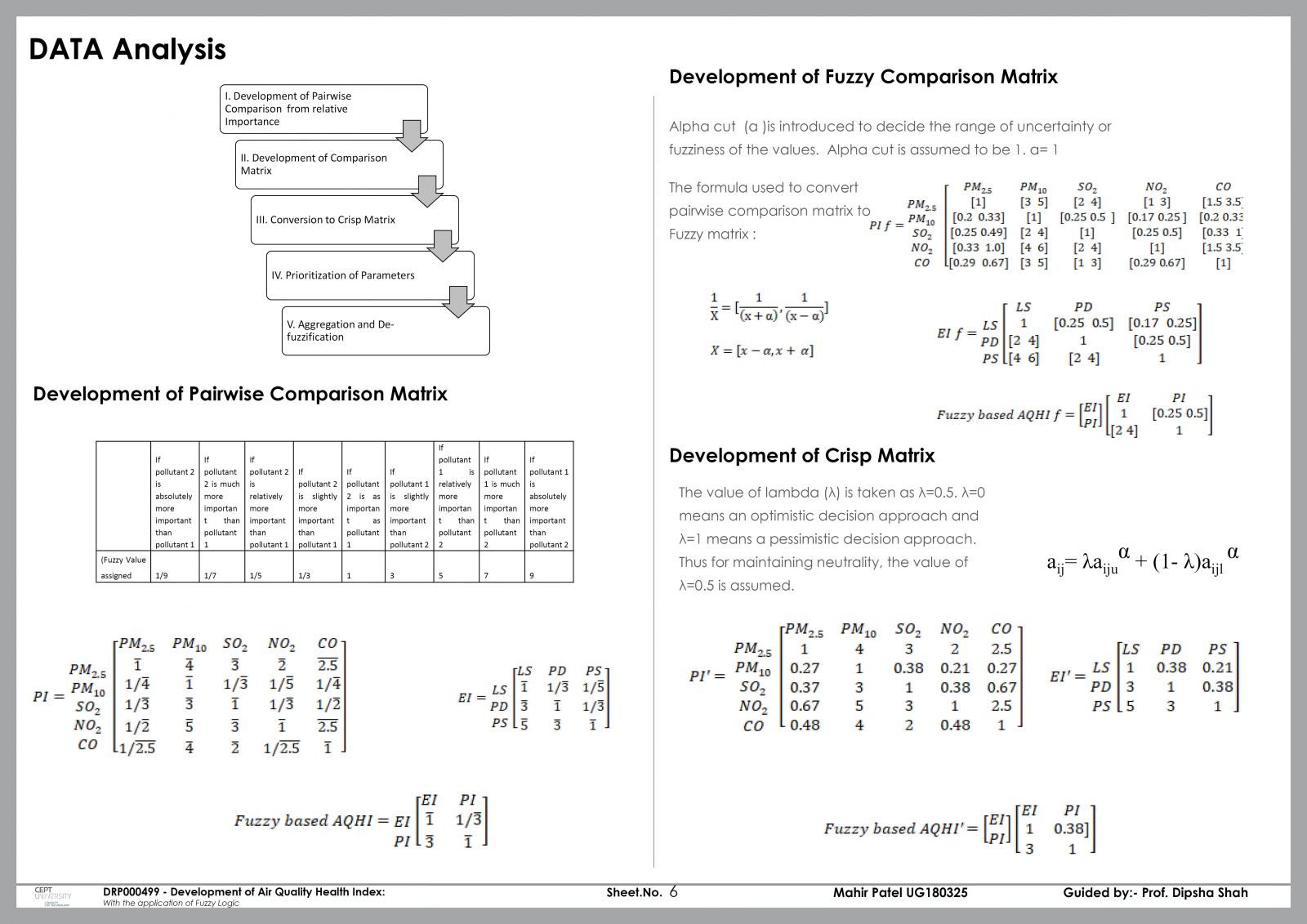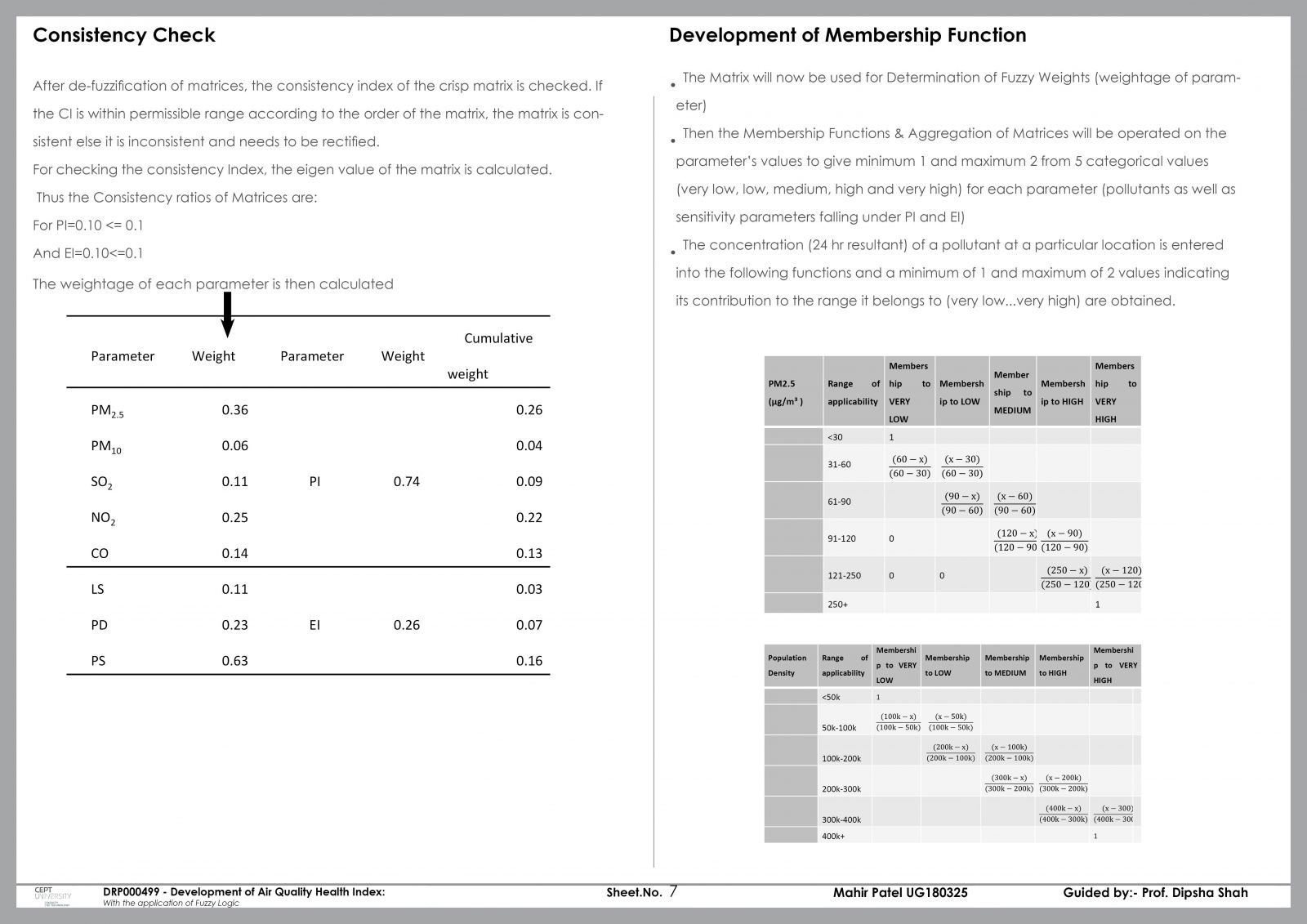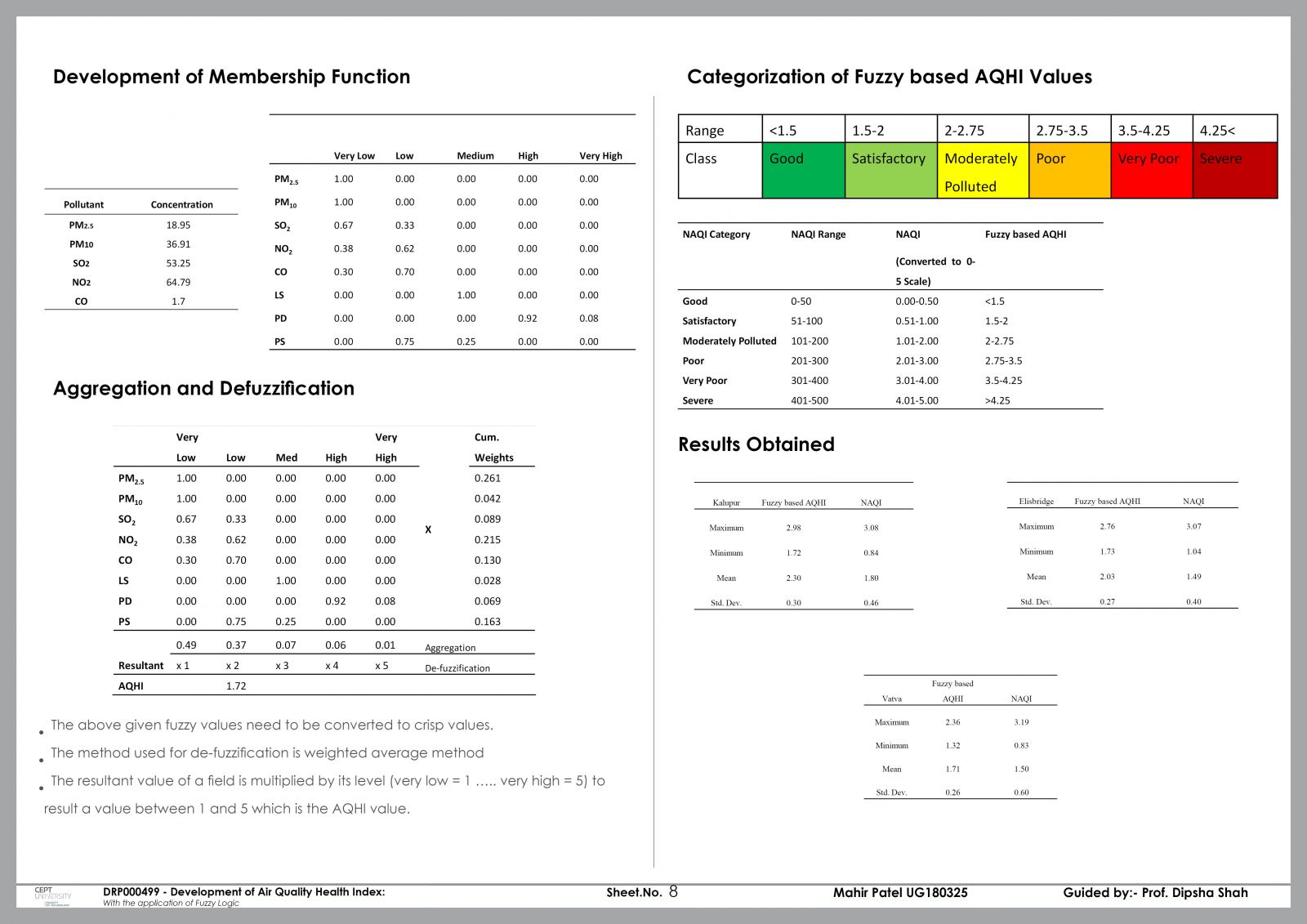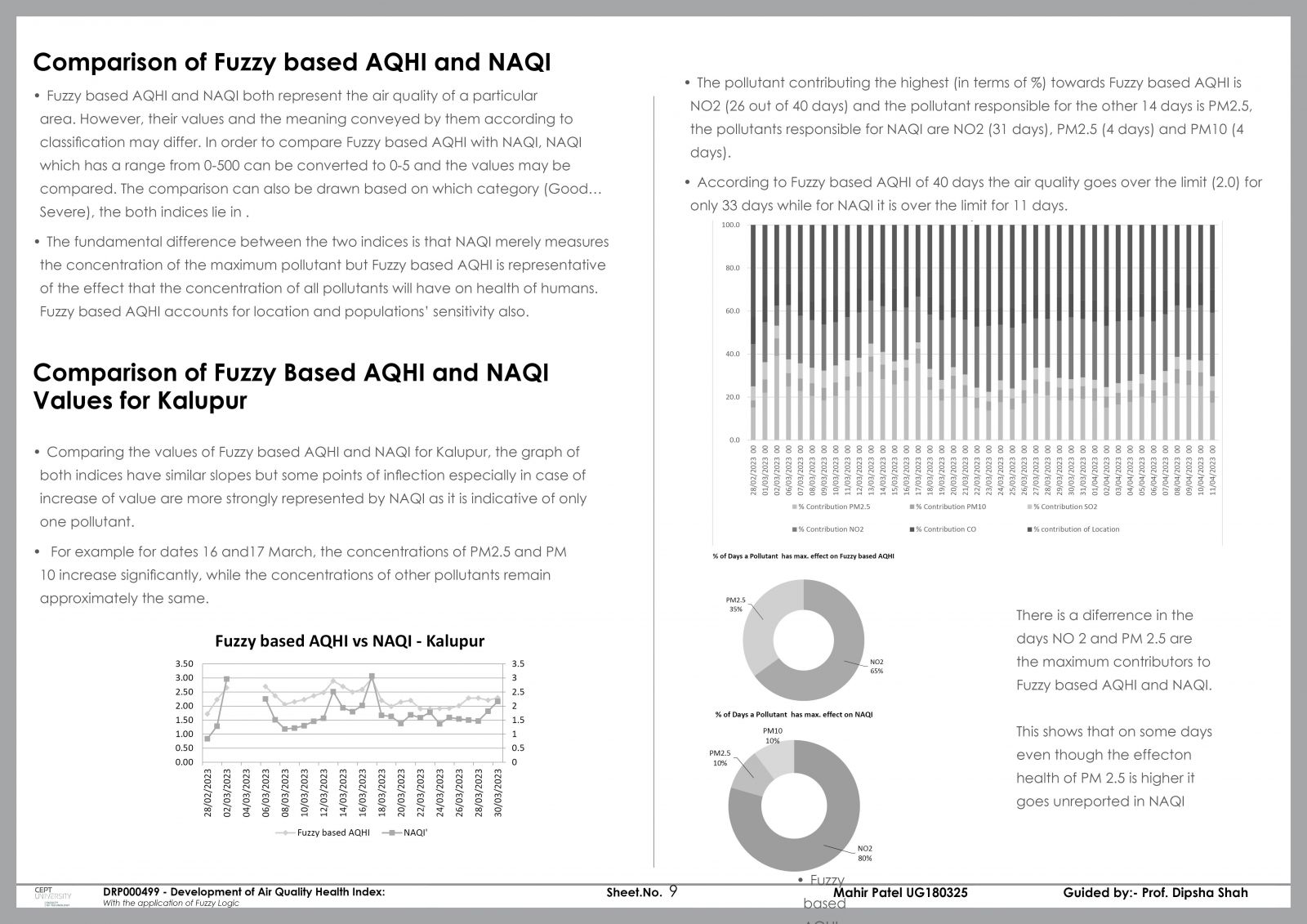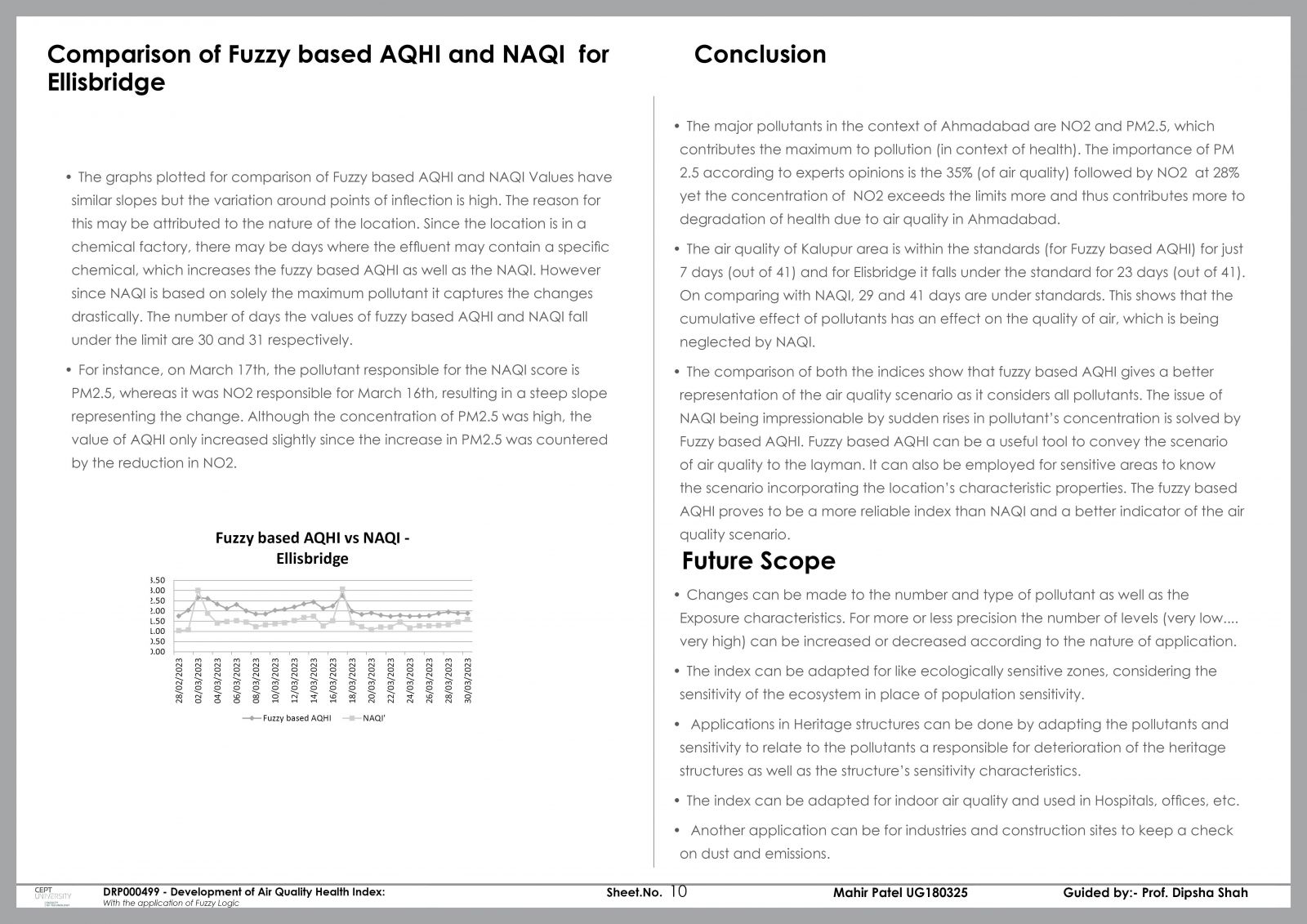Your browser is out-of-date!
For a richer surfing experience on our website, please update your browser. Update my browser now!
For a richer surfing experience on our website, please update your browser. Update my browser now!
At present, maximum operating function-based national air quality indexing (NAQI) system used in India. The limitation of the present air quality indexing system is that they only represent the level of one pollutant at a time, i.e., the index value is based on the concentration of only one pollutant. Hence, it cannot show whether more than one pollutant simultaneously exceeds the daily national ambient air quality standards (NAAQS) or not. This seems a bit arbitrary and over-simplified, especially in the context of such severe pollution concerns. To overcome the limitations of the present NAQI, there is a necessity to develop a new composite air quality index, considering various factors such as an appropriate method of indexing without ambiguity and eclipsing, aggregation of pollutants and number of pollutants as maximum as possible to be monitored. Fuzzy is a concept of mathematics dealing with uncertainty. Since Air Quality has significant uncertainty, fuzzy logic can be applied. Thus, the study aims to develop Fuzzy-based Air Quality Health Index (AQHI). Link to DRP Synopsis
View Additional Work